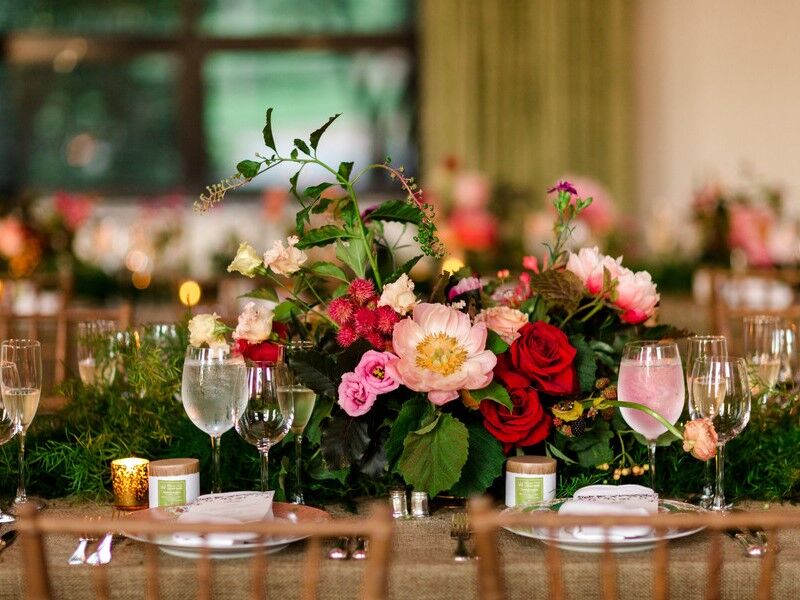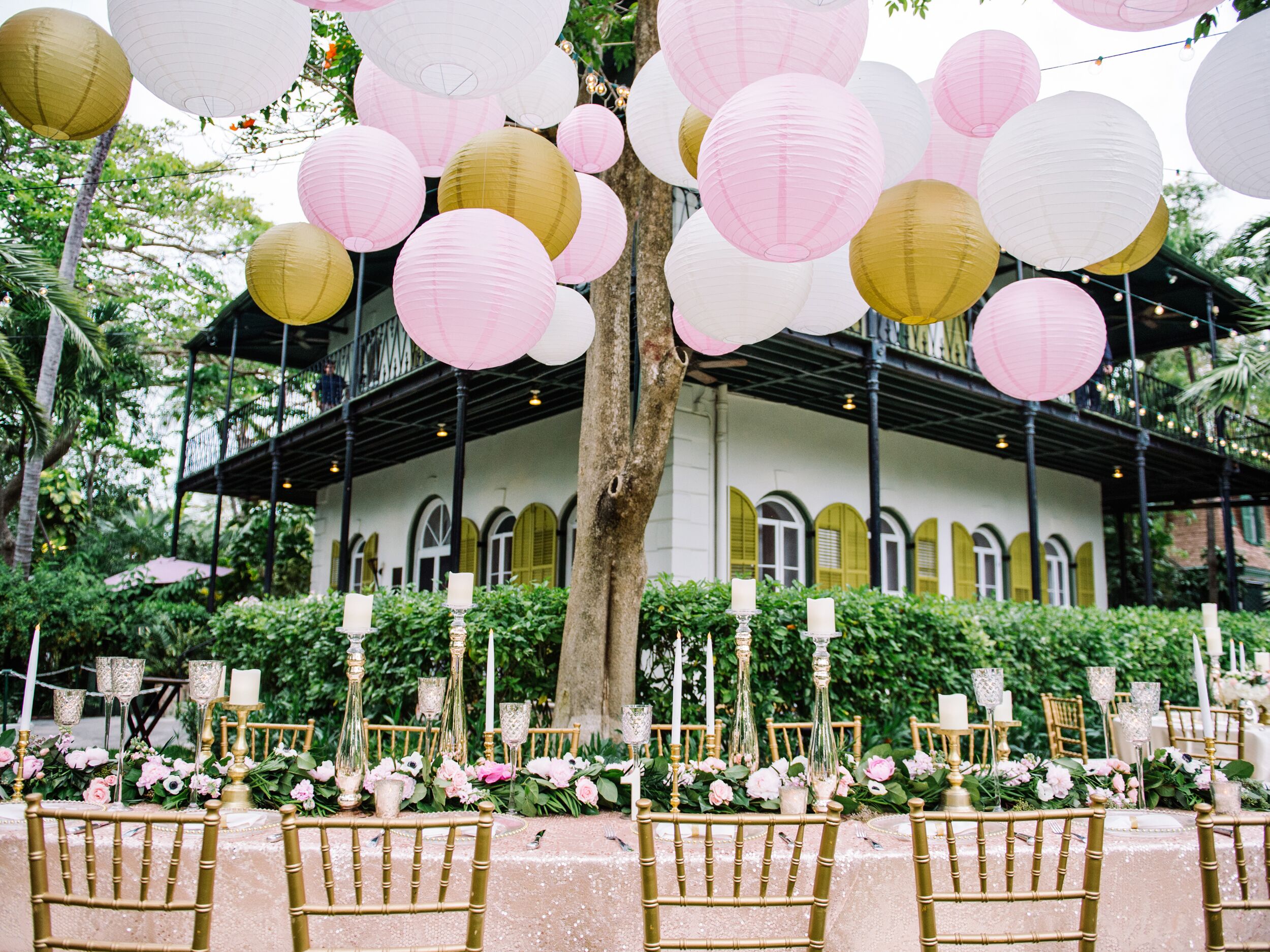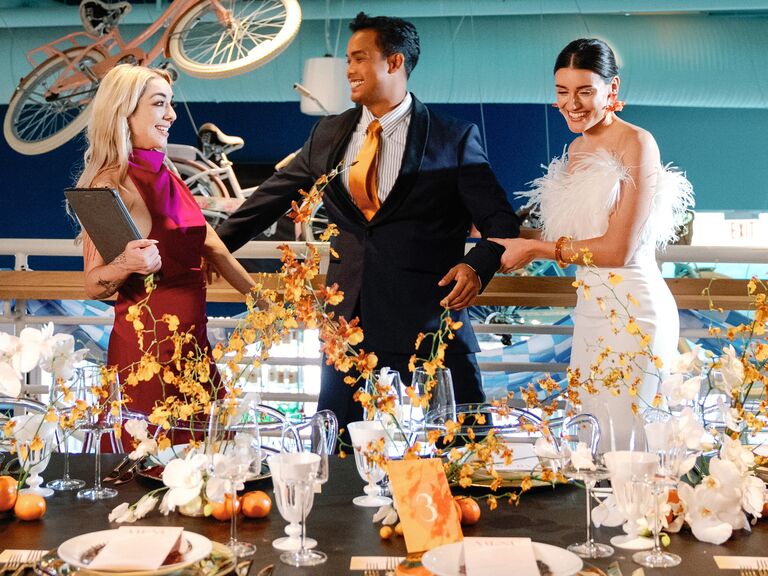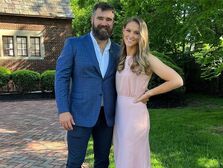How to Talk Money With Your Wedding Vendors
The money conversation—whether you like it or not—happens well before you review a vendor contract. You'll talk budget right from the beginning. In fact, you'll talk money in your first vendor meeting. And while it may be a seemingly awkward situation, it's an integral part of wedding planning. Understand the ins and outs with our top tips.
Check Vendor Websites Before You Call
Do a little homework on The Knot Marketplace first to find out whether a potential vendor falls within your price range before you pick up the phone. Click around their website to look for their pricing page. Some wedding pros make it really easy to find and will list their full package offerings and pricing, while others are more discreet about it. Even for the latter, they'll usually list a budget minimum on their website (look for "packages starting at").
Come Right Out With It
If there's one thing we've learned from talking to wedding pros on the money topic, it's that they really appreciate couples who are forthcoming about their budgets. "Be straight with the vendors and tell them your budget. If you have wiggle room, let them know. For the most part, vendors are very honest and will tell you whether they can work within that budget and whether that budget is realistic," says Laura Wright of OUI Weddings and Events. "If they can't work within your budget, ask them if they'll give you the name of someone who can." You'll save a ton of back-and-forth time if you're on the same page from the beginning.
Ask How Much Things Really Cost
Keep in mind that magazines (like ours) have food stylists, editors and assistants working to make everything look effortless and perfect. The reality is it takes a ton of time, resources and budget to re-create the table designs you see in magazines. "You never know what things cost until you ask," says Vanessa Van Wieren, owner of Alchemy Fine Events & Invitations. And trust us: It's totally normal to experience sticker shock the first time you read through a pricing menu. Once you've learned that wooden farm tables are much more expensive than round tables and that even simple draping requires an entire team of pros, then you'll really be ready to have a conversation. Additionally, when it comes to those intangible talents like photography, videography and design, Chenin Boutwell of Chenin Boutwell Photography points out that you have to remember that in some cases, you're paying for "a unique eye, point of view and experience."
Get an Itemized List
Don't be afraid to ask vendors to itemize quotes so you can see exactly where your money is going. "There may be items and services you're not aware of that you may not need," Van Wieren says. On the other hand, there may be items you really do need (but didn't know you did) like delivery fees associated with table rentals or a second shooter to capture different points of view on camera. Understanding where your budget is being spent is one of the best ways to feel in control and stay on track with wedding expenses (another way is to use our budget calculator).



Don't Feel Intimidated
Wedding vendors are running a business. If they aren't able to work within your budget, they'll let you know. But don't be embarrassed to talk them about your limits. "If they can't work with you, then they should be able to give you the name of someone who can," Wright says. That's the beauty of talking to the pros—there's a huge community of wedding vendors who are all very well connected to one another. If you've fallen in love with a photographer or vendor who's clearly out of your price range, it doesn't hurt to email them and ask for recommendations. "If a couple contacts me and is well beneath my price range, I almost always have recommendations for them," says Jasmine Star of Jasmine Star Photography. "I love helping couples find someone who fits their needs."
Ask About Payment Options
Here's something you might not expect to hear: You can have everything. You just have to plan for it and ask lots of questions along the way. "I always suggest for my couples to put their photography all toward the shooting costs and wait to order prints or an album—maybe a few months or a year down the road," Van Wieren says. "That way, you get a better photographer versus trying to afford a full package."
Sign a Contract
Once you've squared away all the details, get a contract or written agreement—composed in easy-to-understand language—that spells out everything you've discussed. Have an expert eye (your detail-oriented aunt, a lawyer friend or, even better, your wedding planner) look over the contract to make sure it's kosher and clear, and nothing has been forgotten. Sign the contract only when you're completely comfortable with it. You and the vendor should sign and date two copies (one for each of you to keep) so it will be legally binding.
Pay a Deposit
You're not done quite yet—in order to reserve a vendor's services, you'll likely need to put down a deposit too. Until you do, don't consider them booked for your wedding. The deposit is usually a percentage of the total bill (typically about 50 percent, but it varies). Most deposits are nonrefundable in the event of a postponement, cancellation, change of heart and so on, but talk to your vendor. Some are willing to return your deposit (just make sure to get it written into your contract) for special circumstances like loss of a job, illness, postponement (as long as you use their services later) or military deployment. (If not, you can also look into wedding insurance.) Deposits are a good thing—they commit both you and your vendor to your event from the start. Finally, keep track of all deposits you make in your budgeter (and get receipts), so you know how much you've spent and how much is due after the fact.





















